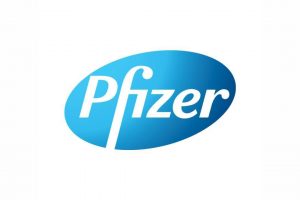Pfizer to remain aggressive on obesity market after setback

NEW YORK – Pfizer will remain aggressive in trying to break into the lucrative obesity market, even after dropping a high profile weight-loss drug candidate late last year due to strong side effects, Chief Executive Albert Bourla said on Monday.
“Pfizer’s position is that we believe that obesity is a place that we have the ability to play and win. So we will have to play,” Mr. Bourla told reporters ahead of his presentation at the JPMorgan healthcare conference in San Francisco.
Analysts have forecast the overall obesity drug market could reach $100 billion by the end of the decade.
Market leaders Eli Lilly with Zepbound and Mounjaro and Novo Nordisk’s Wegovy are already bringing in billions of dollars. The medicines belong to a class of drugs called GLP-1 agonists originally developed for type 2 diabetes, including Novo’s Ozempic, which has been used off-label for weight loss.
Mr. Bourla said it was unlikely the company would buy an obesity treatment in later stage development, which would command a multibillion-dollar price tag, because of Pfizer’s current focus on cutting costs and debt after buying oncology company Seagen for $43 billion.
Still, he said Pfizer was actively scanning the environment for potential licensing deals or earlier stage weight-loss drugs.
Pfizer has been punished by investors in recent months for a string of negative news, including weaker-than-expected sales of its COVID-19 vaccine and treatment, that pushed its shares to 10-year lows and drove the New York-based drugmaker to cut $4 billion in costs.
In early December, Pfizer said it would not advance its twice-daily oral weight-loss drug danuglipron into late-stage studies. Weeks later, it warned that 2024 sales would be as much as $5 billion below Wall Street expectations, mostly due to shortfalls in its COVID franchise.
Pfizer’s launch of its respiratory syncytial virus (RSV) vaccine Abrysvo last year has also been a disappointment, Bourla said, only taking roughly 35% of market share in the United States, badly lagging a rival vaccine from GSK.
“For me that was very unacceptable and doesn’t reflect anything other than GSK were able to do better contracting and better commercial execution,” Mr. Bourla said.
He said most of the RSV vaccines were administered in pharmacies, where GSK was able to dominate. For much of the season, GSK’s was the only shot offered by CVS Health, the biggest US pharmacy chain in the US and a dominant player in the retail vaccine market.
Mr. Bourla said the company was not happy with the performance of its commercial operation in 2023. Former Chief Commercial Officer Angela Hwang stepped down last month, and the company split its commercial business into two divisions, one focused on the United States and the other on the rest of the world.
“Overall, Pfizer didn’t demonstrate that edge that we had as a commercial machine that used to be a well oiled machine that was very credible launching products and we took some measures to correct that,” Mr. Bourla said. – Reuters




